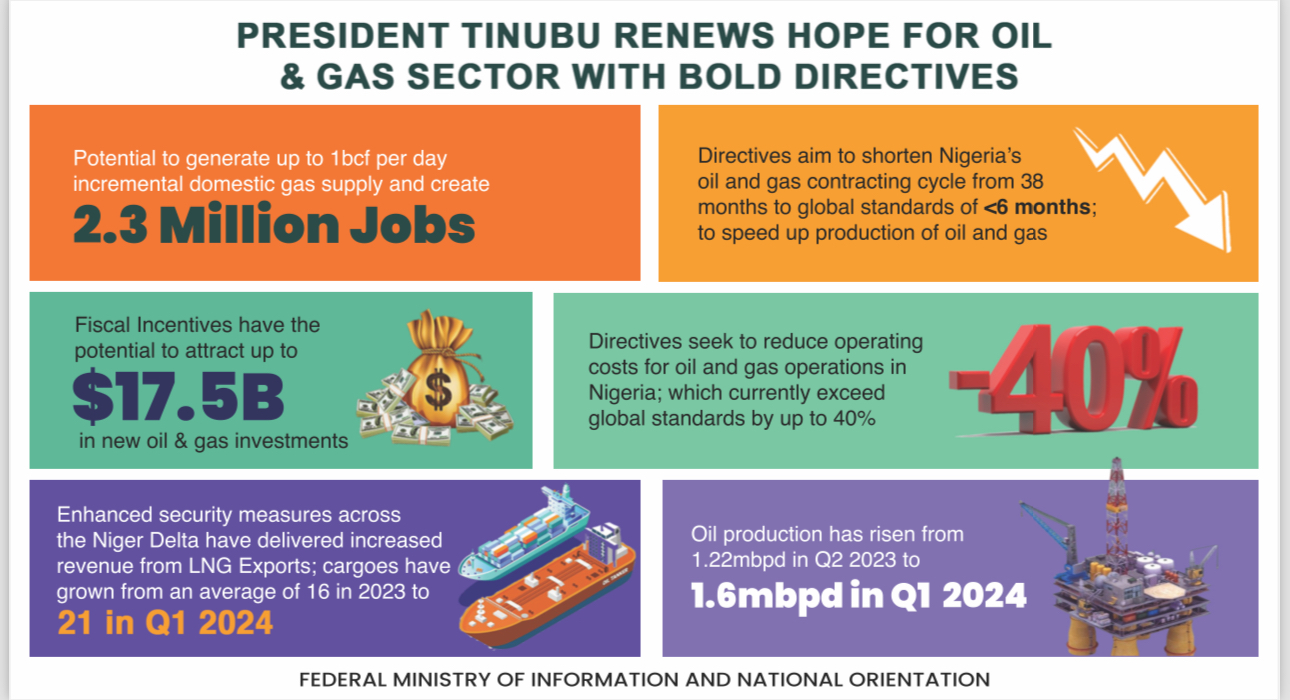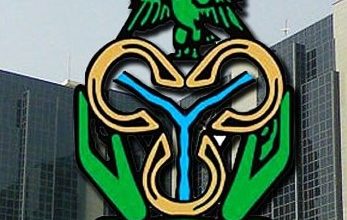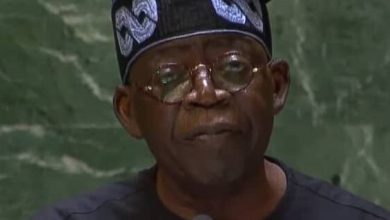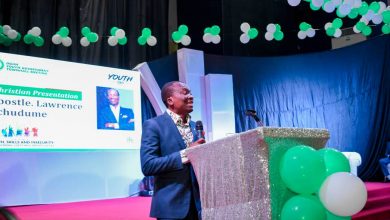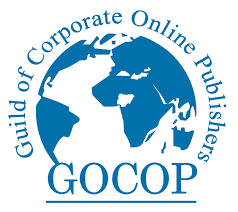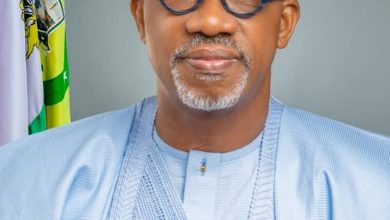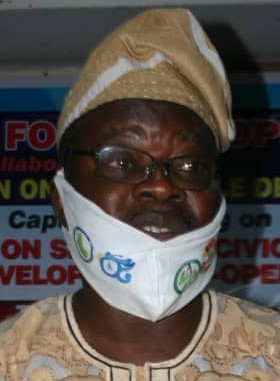
For the record: “Multi stakeholders’ campaign against shrinking and closing civic space in Nigeria” being a key note address by Dr Tola Winjobi Principal coordinator, Cafso-Wrag for Development and the African Representative, Civil Society Partnership for Development Effectiveness as part of the activities of CPDE national level campaigns against shrinking civic space 2020 holding in Ibadan Nigeria, West Africa
CAFSO-WRAG for Development is a humanitarian, not for profit, and non-governmental organization established in 1994 in Ibadan, Nigeria. Its main task is to challenge the structures and institutions that perpetuate poverty, hunger and preventable diseases, and campaign for the fulfilment of all socio-economic and human rights for sustainable human and ecological development. It is deploying a series of activities including a press conference, capacity building, and social media action to tackle the issue of the shrinking civic space in commemorating the 2020 CPDE National Level Campaigns against Shrinking Civic Space.
The general objective of this project is “Deepening national awareness campaign in reversing the trend of shrinking and closing civic space in Nigeria”. The specific objectives include:
*To strengthen the civil society with policy advocacy skills on the issue of shrinking civic space so as to be conducting action, mass mobilization, and other activities geared at influencing relevant official policies, programmes or processes.
Using multiple campaign strategies, to create more awareness on the shrinking space for CSOs so as for governments to reverse the trend.
*To increase, broaden, and expand CSO constituencies in advancing CSO enabling environment, and monitoring EDC principles and implementation.
*To engage relevant national development cooperation actors on the status of implementing the international commitments so as to gauge their initiatives’ alignment with the EDC principles.
*To present before government specific demands reversing the trend of shrinking and closing civic space in particular seeking sanctions against security operatives that have killed or maimed development actors in Nigeria (#endSARS and #5for5).

According to the Belgrade Call to Action (2019), over six billion people are living in countries where there are serious constraints on civic space: the conditions are closed for civil society in 23 countries; civil society is highly repressed in 35 countries while civil society faces substantial legal and political obstacles in 53 countries. Civic actors across many sectors are being threatened and persecuted – including those supporting and representing rural communities, indigenous peoples, journalists, trade unions, women’s rights activists, LGBTQ activists, youth, people living with disabilities, and environmentalists. Harassment through arbitrary arrest, detention, targeted use of legal and regulatory measures, and restrictions on finances has become common experience among civil society organisations (CSOs) in many countries. Commonplace are physical harm, and sexual harassment and abuse of women human rights defenders, GBV, brutal security operatives, authorities’ deliberate tagging as undesirable elements and criminals of rights activists and development actors. All these happen because the advocacy for peoples’ human rights and promotion of democratic participation are deemed by repressive states as dissent and, therefore, not to be tolerated.
In Nigeria, there is much impunity and violation of the rule of law as governments are adamant to court rulings against them. Many civilians like SamboDasuki, and Ibrahim El-Zakisaky, some journalists and civil society actors that campaigned for them are kept behind bars despite court injunction to release them on bail. Human rights abuses are common especially as being perpetrated by the state. There have been obnoxious actions and policies targeted at civil society by government in order to stifle the former.
These include measures banning public demonstrations and other forms of public expression being met with police brutality. Reminiscing, Nigeria was boiling as civil society actors had taken to the streets protesting against police brutality as being perpetrated by Federal Special Anti-Robbery Squad (F-SARS). Already 49 citizens were killed as a result of this protest which started around September 2020 (Punch Newspaper October 21 2020).
Systemic repressive and oppressive actions have been taken by government against the civil society. Some of these actions required mandatory registration with difficult requirements for CSO operations; regulatory restrictions and nebulous legislation including hate speech attracting N50 million penalty or death penalty; measures banning public demonstrations and processions except for the Nigerian state; poor and limited spaces available for CSO participation; and lack of technical and financial support for CSOs effective engagement and operations coupled with donor’s fatigue.
Alas, not only Nigeria’s fledgling democracy is being threatened, but the attainment of Sustainable Development Goals (SDGs) is also being jeopardised in Nigeria through the action of governments. Upholding human rights is core to development; and human rights-based approach (HRBA) is a fundamental principle for development effectiveness. It represents a paradigm shift crucial in achieving the SDGs as it enables the poor and marginalized people to chart their own destiny by empowering them as rights-holders instead of mere beneficiaries of charity.
The maginalised are so pauperised to the extent that they could not discern their rights let alone to stand for them. Thus they are being left behind. Real and transformative progress in achieving core SDGs – including eradicating poverty (SDG1), eliminating hunger (SDG2), addressing gender and all forms of discrimination (SDG5) reducing inequalities (SDG10), promoting decent work and sustainable livelihoods for all (SDG8) – will not be possible without a fully engaged civil society and population. The strengths of civil society are its diversity, its rootedness in communities and territories, its direct development experience, and its capacity for public engagement.
Despite promises of action by many United Nations Member States (including Nigerian State) to “reverse the trend of shrinking civic space wherever it is taking place,” (Nairobi Outcome Document, GPEDC) attacks on CSOs, social leaders and human rights defenders, and the deterioration of enabling environment for CSOs (GPEDC 2019:8) continue unabated.Nigerian NGOs, Community Development Association, Academia, Human rights activists, LGBT group, National Youth Council, opposition politicians all have been engaging governments on the need to make governance participatory, open and accountable and respect the rights of the citizens. Of much concern to all stakeholders is the invasion of civil society offices by security operatives and senseless killings by authorities thus decimating development actors. This is part of what our project action is about including seeking the release of those development actors including journalists and supporters of #EndSARS protest that have been detained by government while authority killers should face the music.
The action is about organizing social (using Twitter, intagram, Facebook, web updates, whatsapp) and traditional media (newspapers) campaigns against the shrinking space for the CSOs. This capacity building involving stakeholders (Youth group, CDA, CISGHAN, CPN, Human Rights Group, CSCSD) is being organized to heighten the concerns and broaden activism on advancing CSO enabling environment, and monitoring EDC principles and implementation. Today there will be some protest to demonstrate that we have received sufficient capacity in campaigning against injustice in our land as a result of the training we are going to receive.
In view of this shrinking civic space, we therefore call on Nigerian governments:
*To take concrete steps to reverse trends of shrinking and closing civic spaces in development, to protect and enable space for civil society, including enabling laws and regulations, democratic accountability based on human rights norms and human rights standards, and the full protection of civil society under attack – such as social leaders, human rights defenders and gender rights activists.
*To repeal and halt all obnoxious laws, policies, and bills stifling operations of civil society including CAMA and social media bill i.e. Hate Speech Bill that metes out death penalty on the violator especially the press.
*To respect democratic country ownership of national development plans, and recognize the importance of the inter-connected themes in achieving Agenda 2030 — civil society voice, eradicating poverty, women’s empowerment, fighting inequality, decent work, climate action and environmental justice — without which the realisation of the SDGs would be a mirage in Nigeria.
*To hold effective, inclusive and transparent consultations with CSOs regarding national development priorities and guarantee meaningful inclusive CSO participation in decision-making and creation of public policies all in tandem with the UN Agenda 2030 mantra of “Leave no one behind”; and implement public policies to promote and strengthen CSOs.
*To uphold the rule of law, shun impunity, respect human rights, promote the right to initiative of citizens,and uphold all fundamental rights and freedoms including, but not limited to, freedom of association, of expression, and political participation, the rights to peaceful assembly and information, and release unconditionally all the political prisoners and prisoners of conscience including the activists and journalists kept behind bars despite court injunction to release them on bail.
This workshop is targeted at training youth group, CDA, CISGHAN, PLWD, CPN, Human Rights Group, and CSCSD members on shrinking civic space, enabling environment for CSOs, monitoring EDC principles and implementation so as to be conducting action, mass mobilization, and other activities geared at influencing relevant official policies, programmes or processes. We believe there would be useful suggestions to stem the tide of the shrinking civic space while we are hopeful that governments would reverse the trend of the repressive shrinking space with the understanding that the realisation of the 2030 Agenda is hinged on freedom of speech, respect for human rights, and upholding the rule of law.
I wish you all successful deliberations.
Thank you.
Tola Winjobi (PhD)
Principal Coordinator, CAFSO-WRAG for Development
African Representative, Civil Society Partnership for Development Effectiveness (CPDE)
FOOTNOTE: You want to share story with us? You want to advertise with us? You need publicity for product, or service, or event? Contact us on WhatsApp +2348073463653 or email [email protected]

